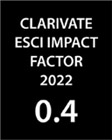Mátészalka, the Successful City – Is It a Real Success, or Just a Hoping Breaking Through Attempt?
DOI:
https://doi.org/10.17649/TET.14.1.559Abstract
The present study examines the causes and the factors of success. It contains the main results of the analysis of the city of Mátészalka and two settlements of its agglomeration zone (Jármi and Ópályi). The study shows the last, the present and the future developments opportunities of the city and the two settlements in the base of statistical data, writings and surveys and interviews. The remarkable success is extremely relative at present even in the case of Mátészalka. It has only a quite occasional influence on its near surroundings. We could hardly speak about a real break through or an upsurge including the whole of the local social-economic sphere.
The aim of the analysis based on the available data was the following questions: The cities and its surroundings standing a chance for development can really show the unbroken signs of development for future? Do they have the fundamental factors of successfulness? Answering these questions is especially important in our case because Mátészalka has the notes of successfulness in a more underdeveloped region than the Great Plain. Deciding if the city is successful in comparison its closer surroundings or in comparison to the whole Great Plain has great importance. In the last case it could be able to promote the renewing of the whole Szabolcs-Szatmár-Bereg county.
Downloads
Published
How to Cite
Issue
Section
License
Authors wishing to publish in the journal accept the terms and conditions detailed in the LICENSING TERMS.






